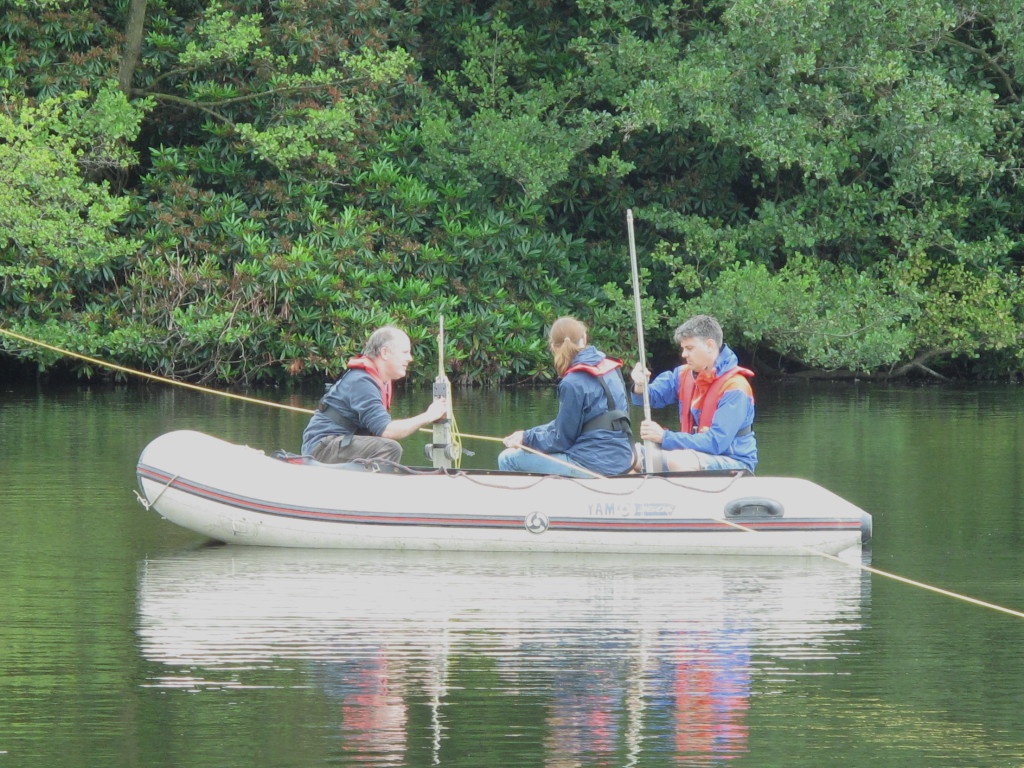“How good and pleasant it is when God’s people live together in unity! . . . For there the LORD bestows his blessing, even life forevermore.” Psalm 133:1, 3b (NIV)
“For where two or three gather in my name, there am I with them.” Matthew 18:20 (NIV)
“And let us consider how we may spur one another on toward love and good deeds, not giving up meeting together, as some are in the habit of doing, but encouraging one another – and all the more as you see the Day approaching.” Hebrews 10: 24-25 (NIV)
Reflection
You’re a postgraduate student with a busy course and research schedule, spending long hours in the lab or poring over books. Or a new lecturer, coming to grips with juggling teaching, marking and caring for your students with continuing to build your research career. You’re also a Christian, involved in a local church. You attend a church Bible study group, or you are active in a particular ministry within the church. And yet . . . Somehow there’s one piece of the jigsaw missing. It is not easy to connect the two worlds: that of your daily work in the university, and that of your Sunday (and maybe one or two weekday evenings) shared with your church community.
There are unique challenges to being a Christian scholar, in intellectual, emotional and relational respects. As Christian scholars, we are called to carry out our work in a way that is faithful – filled with faith, and faithful to God’s purposes. But on our own, it can be difficult to discern what faithful scholarship looks like in our particular, but often rather narrow subject area. Of course you can grow and mature as a Christian in many and crucial areas by being involved with a local church too. But to develop a Christian mind, it is really great to come alongside others who are struggling with the same issues, and to bear fruit by going through that struggle together.
Fellowship with other Christian scholars can help us to live out our calling in the specific subject we find ourselves in. And we are in a unique position to help other Christian scholars to understand their own role. The Christian vision of scholarship, after all, is holistic: everything we study is created by God, impacted by the fall of mankind, and in the process of being redeemed by Christ, who rules over all he created. For that reason, as Christian scholars, we not only seek excellence in the details of our field, but we also try to connect our work to the wider world of other academic fields, as well as the practical realities of the rest of our life in our society and environment.
The scriptures encourage us to meet together with other Christians. Whilst meeting with believers from all kinds of backgrounds, ages and cultures in church is the primary expression of this, Christian scholars will benefit greatly from meeting other Christians in similar positions. Psalm 133 describes such fellowship as a ‘good and pleasant’ thing, like a precious perfume, or the refreshing morning dew. The Lord promises to bless such people with the presence of His presence.
Questions
1. How do you seek to develop a Christian mind?
2. How could you encourage others to be faithful scholars?
3. Could you meet with other Christian scholars? Are there any existing initiatives on your campus? If not, could you consider starting a Bible study group or reading group, or do you know one or two people you could meet up with to read and pray through Scholar’s Compass?
Prayer
Almighty God, all things have been created through you and for you. Help us to be faithful to our calling and fulfil your purposes through us. Lord Jesus, in you all things hold together. Give us insight into the interconnectedness of all we study. Holy Spirit, lead us into all truth. May we experience fellowship with other Christian scholars, and bless us with your presence as we meet together. Amen.
Adapted from a blog post on the Faith in Scholarship-blog, posted 28 February 2014, http://faithinscholarship.org.uk/christian-postgraduate-groups-why/
The author at work with a community. Image courtesy of Eline van Asperen.
Eline N. van Asperen is a Leverhulme Early Career Fellow at Liverpool John Moores University, United Kingdom. She holds a PhD in archaeology, with a focus on ice age large mammals, but currently researches fossil fungi that grew on animal dung! Originally from the Netherlands, she and her British husband live in Bebington, a village south of Liverpool. Besides her academic work, she is involved in Christian postgraduate ministry through Faith-in-Scholarship (http://www.faithinscholarship.org.uk/) and Transforming the Mind (http://www.christianpostgrad.org.uk).


Leave a Reply